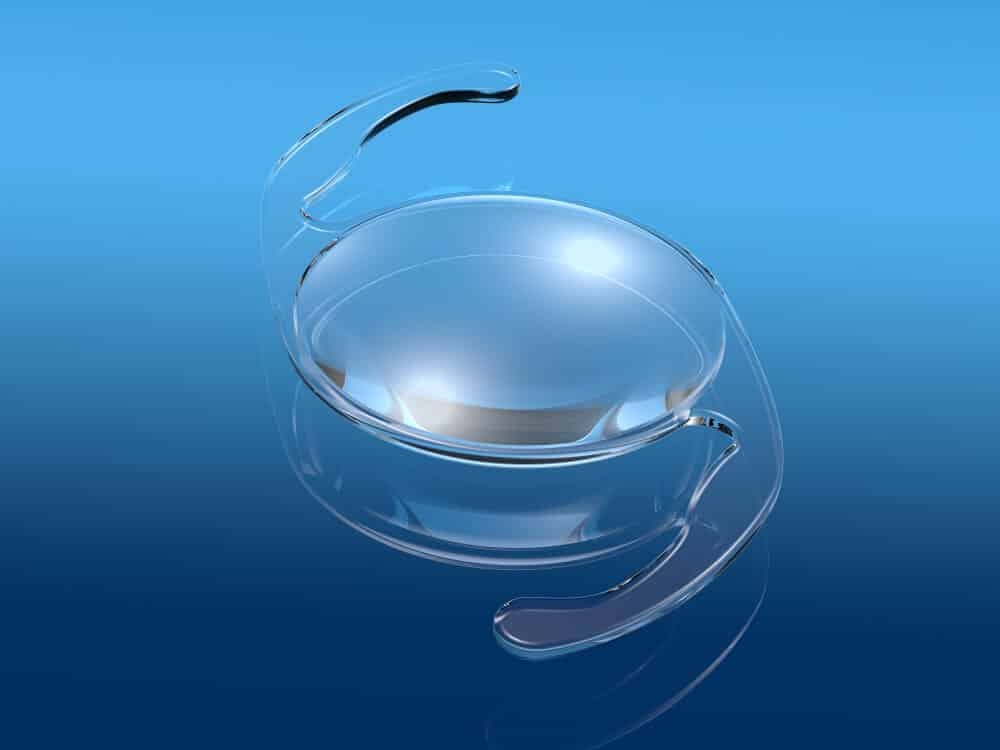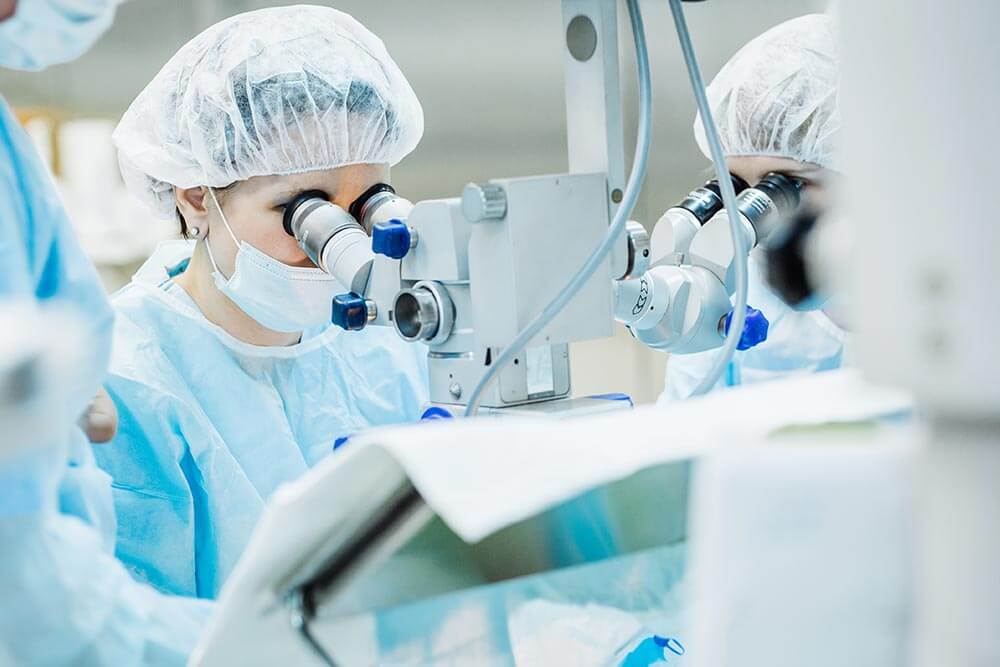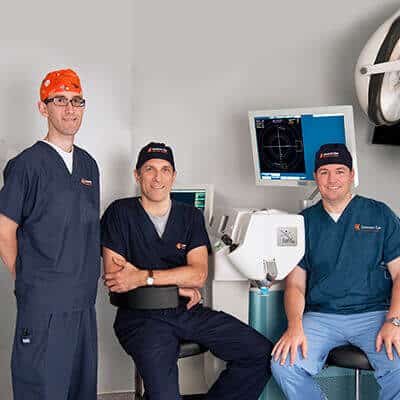Cataracts are a clouding of your eye’s natural lens. They slowly develop over time, when proteins in the lens start to clump together, blocking light and causing blurry, dull vision. About 24 million Americans have cataracts. They typically start to develop by age 60, but they can start earlier, as one in six people over age 40 has a cataract.
Because cataracts generally do not cause pain, redness or tears, people often don’t even realize they are developing them. Left untreated, however, they will lead to blindness.
If you’re having difficulty going about daily activities, such as reading or driving, because of blurred vision then you may have a cataract. This is the time to call Clemson Eye to book an eye exam. We generally recommend an annual eye exam for everyone to ensure ongoing visual health. But if you are experiencing any of these signs or notice any changes in your vision, book an eye exam immediately.






Surgery is the only known treatment for cataracts, and two things happen during the surgery. Your clouded lens is removed and an intraocular lens (IOL) is implanted. The lens requires no care and simply becomes a permanent part of your eye. You don’t see or feel the new lens.


At Clemson Eye, our eye surgeons perform traditional, basic cataract surgery and blade free laser cataract surgery using fast, highly precise laser suites, calibrated through specialized computer-guided software.
If you think you might need cataract surgery, the first step is to have a comprehensive eye examination. Your doctor will be able to determine if a cataract is the cause of your decreased vision. If it is, and if it is inhibiting your quality of life and the activities that bring you joy, then our surgeons can help you determine which cataract surgery option is best for your eyes and lifestyle.

Basic cataract surgery involves a small incision in the cornea. This is done by the eye surgeon using handheld blades. The surgeon then removes the diseased lens and implants a monofocal lens. The monofocal intraocular lens (IOL) clears your vision at a single focal point. It cannot correct astigmatism or other existing refractive errors. Traditional cataract surgery is one of the most routinely performed surgeries, and is safe with effective outcomes when performed by a skilled surgeon. This treatment is covered by Medicare and most health insurance plans. However, if you wore eye glasses before your basic cataract surgery, you will still need them after the surgery.
The eye surgeons at Clemson Eye were among the first in the country to perform laser-assisted cataract surgery with premium lens implants. To do this, they use the most advanced laser-guided surgery systems available today.
Laser cataract surgery results in much more precise incisions, less stress on the eye and less damage to the eye’s delicate tissues. The highly customized procedure involves a tiny 2.2 mm stitch‑less laser incision and the replacement of the diseased, cloudy lens with a clear lens implant.
Using the FDA-approved LenSx® laser, Clemson Eye surgeons create incisions that are up to 10 times more precise than manual incisions. During the 15-minute surgery, patients are comfortably awake and experience clear vision during a quick recovery. The precision and customization of laser cataract surgery is perfectly suited to patients seeking an improved visual outcome through an advanced lens implant. There are different types of advanced intraocular lens implants that can correct nearsightedness, farsightedness and/or astigmatism during the same cataract removal procedure.
Through laser cataract surgery with premium lenses, we can deliver the best possible visual outcomes for our cataract patients. Regardless of their age, Clemson Eye patients enjoy excellent restored vision, whereby they are entirely free of or much less dependent on eyeglasses.

It used to be over the past six decades that the only choice for a cataract surgery implant was the standard ‘monofocal’ IOLs. They still offer good functional ‘distance’ vision, but reading glasses are almost always needed for near vision.
If you want to be less dependent on eyeglasses or contact lenses, or if you have astigmatism, then the FDA approved Premium Intraocular Lens (IOLs) are a better choice. Because of the advanced technology utilized in these Premium IOLs, your vision may be better than it would be if the standard IOL was used.
Charlie Gareri and Irby Shealy have scored 3 and 2 holes in one, respectively, since having cataract surgery with Dr. Brian Johnson at Clemson Eye.
Once you have cataract surgery, you cannot change your mind to upgrade to a Premium Lens Implants. That is why it is so important to really think about this decision ahead of time. At Clemson Eye, we strive to answer all your questions and help you through this decision process. We understand that your lifetime of good vision depends on it.
If you have glaucoma and cataracts, we can add another step to cataract surgery to manage mild‑to‑moderate open‑angle glaucoma in a completely new way.
The iStent Trabecular Micro‑Bypass stent is a new surgical device for glaucoma that is designed to improve aqueous outflow to safely lower intraocular pressure and reduce the medication burden.
This is important because once diagnosed with glaucoma, most patients will spend the rest of their lives putting one, two or even three different kinds of drops in every day. All of these drops are not only inconvenient, but expensive. The iStent is designed to reduce eye pressure and is implanted during cataract surgery.
The iStent is the smallest medical device ever approved by the FDA and is placed in your eye during cataract surgery. It is so small, you won’t be able to see or feel it after surgery but it will be continuously working to help reduce your eye pressure.
As an iStent‑trained surgeon, Dr. Joseph Parisi, Medical Director at Clemson Eye, offers this treatment solution to glaucoma patients who come to us for cataract surgery.
Implanting the iStent during cataract surgery is covered by most insurance plans, Medicare and Medicaid. Currently, the FDA only permits the procedure to be performed in conjunction with cataract surgery.

A portion of the cost of laser cataract surgery and advanced lens implants is covered by Medicare and most health insurance plans. However, an additional payment is required. If you’re a Clemson Eye patient, you have the option of 24‑month, 0% payment plans.
Our eye surgeons always take the time to discuss the best possible surgical solutions for your visual health and individual situation. Our cataract surgeons together have performed over 20,000 cataract operations, restoring lost vision and function for patients. They all offer basic and advanced laser cataract surgery, with monofocal or advanced lens implants.





The first step to find out if you need cataract surgery is a comprehensive eye exam with one of our Board Certified Ophthalmologists at Clemson Eye.